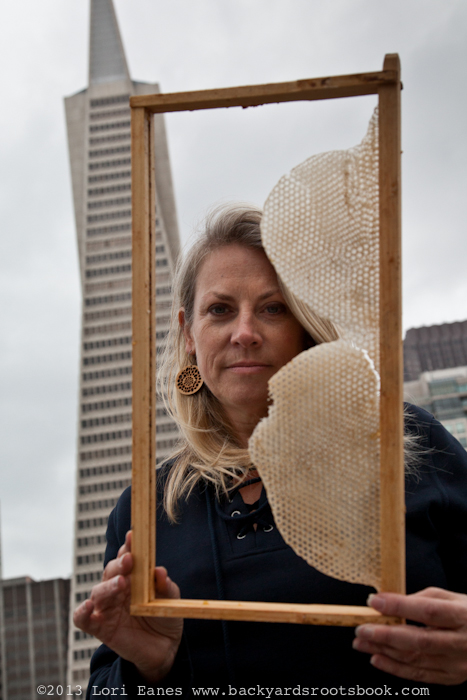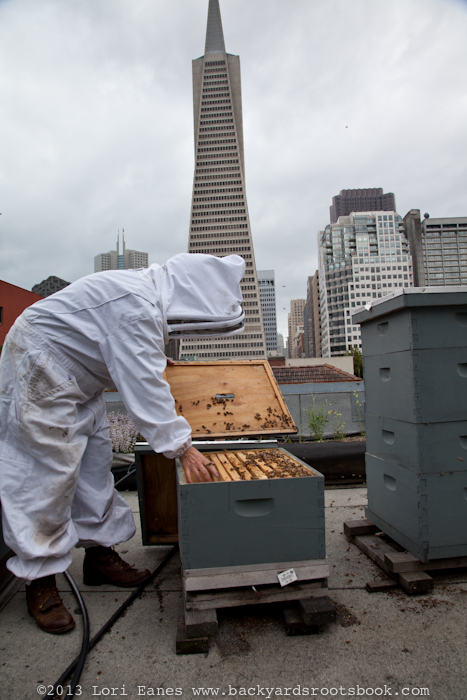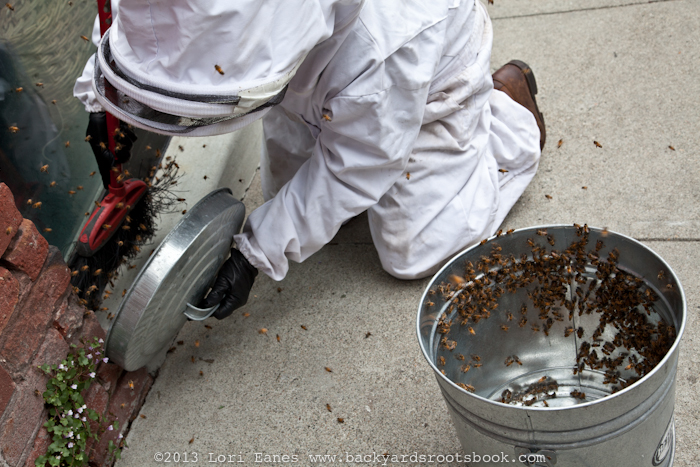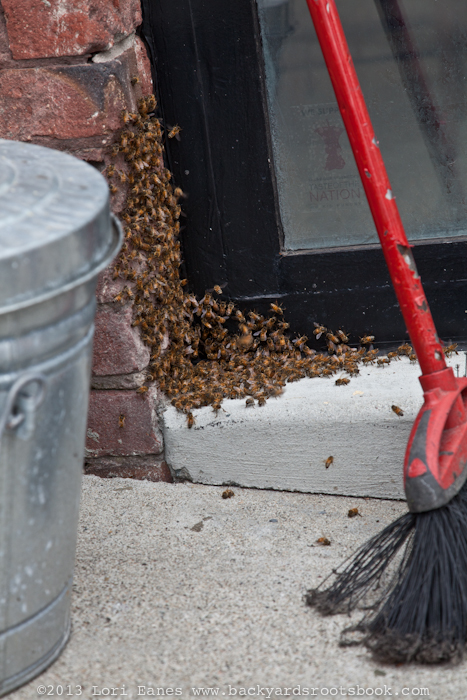Urban Zen beekeeping is is all about intention, Therese Oxford says. It’s about helping the bees; the workers, drones and the queen, and not just about harvesting honey. It’s about not using pesticides, antibiotics, sugar or even plastic in the hives. She believes the factory farming of bees is contributing to their destruction. Back in the nineties she first became very interested in them as she read about their plight. She later took classes at the Green Gulch Zen Center. “If bees don’t make it, we won’t make it,” she says. “Time for radical language! This is it! We have to get out of denial or we’re done.”
She started maintaining bee hives for restaurants in 2009 and now she maintains roof top hives for some of San Francisco’s top restaurants including Jardiniere, Quince, Cotogna, Nopa and Tony’s Pizza. She doesn’t do it for the money though, and she takes much less honey than the average beekeeper. She likes to leave enough for the bees to overwinter without having to feed them sugar or corn syrup. She also never uses miticides to treat mites. Her hives are “survivor” hives she says and she believes they are stronger without antibiotics or pesticides. Her unconventional methods seem to work. This year she lost no hives. Well, except one, to a mouse.
When I asked her if she thought more people should get into beekeeping she says no. “It’s too easy to kill bees, it’s a lot of work to keep bees alive. Instead, focus on making something green. Plant a garden, support a tree.” she says, “Make some food for bees and if you really want to get started in beekeeping, help a beekeeper.”






I am a high school teacher who is coming to San Francisco tomorrow to the Randall Museum. We are doing a 4 day workshop on honey bees and I am curious if there is any way to visit a roof top urban beekeeper while we are in the city tomorrow. It is very short notice. But we are a small group of 8 students and 2 teachers and we care alot about the bees! I can get email on my cell phone at agee108@gmail.com if you can possibly meet us, please let me know!
Thanks!
-Alison
I would love some advice. I am renovating a historic town square office building loft into living space. For three years I have had a hive of bees living in my brick wall above an old window. Their access was left undisturbed during exterior repair. I am a prolific sidewalk gardener so they have plenty to eat and appear to be thriving. Other than a few stings incurred by my pups and myself and constantly dirty windows they are welcome. My concern is that they will run out of space. Are they self policing? Any advice to ensure their continued good health? I use no pesticides or chemicals except fertilizer for my flowers. I do however, water with gray water when possible which contains store bought dish washing liquid and/or laundry detergent. I have considered purchasing a hive and locating it on the roof below the window they currently occupy….
From what I have learned from bee keepers, if the hive thrives and grows big enough the bees will divide into two groups in the spring. This is called swarming. It would be a good idea to find a beekeeper in advance who can take the swarming hive and put it in a new home. Most swarms have a hard time finding a home and don’t make it—you could also set up a hive in advance and try to put them in it yourself. Swarming hives are docile and can be brushed into a box and moved, but you have to be sure and include the queen. Good luck!
https://www.youtube.com/channel/UCyxM_MlJsJQaQSuJ8lR58tg
https://www.youtube.com/channel/UCJLXoLNzHeK70WCJlQNYf-g